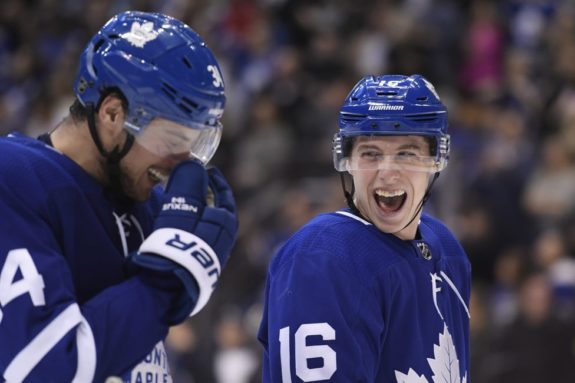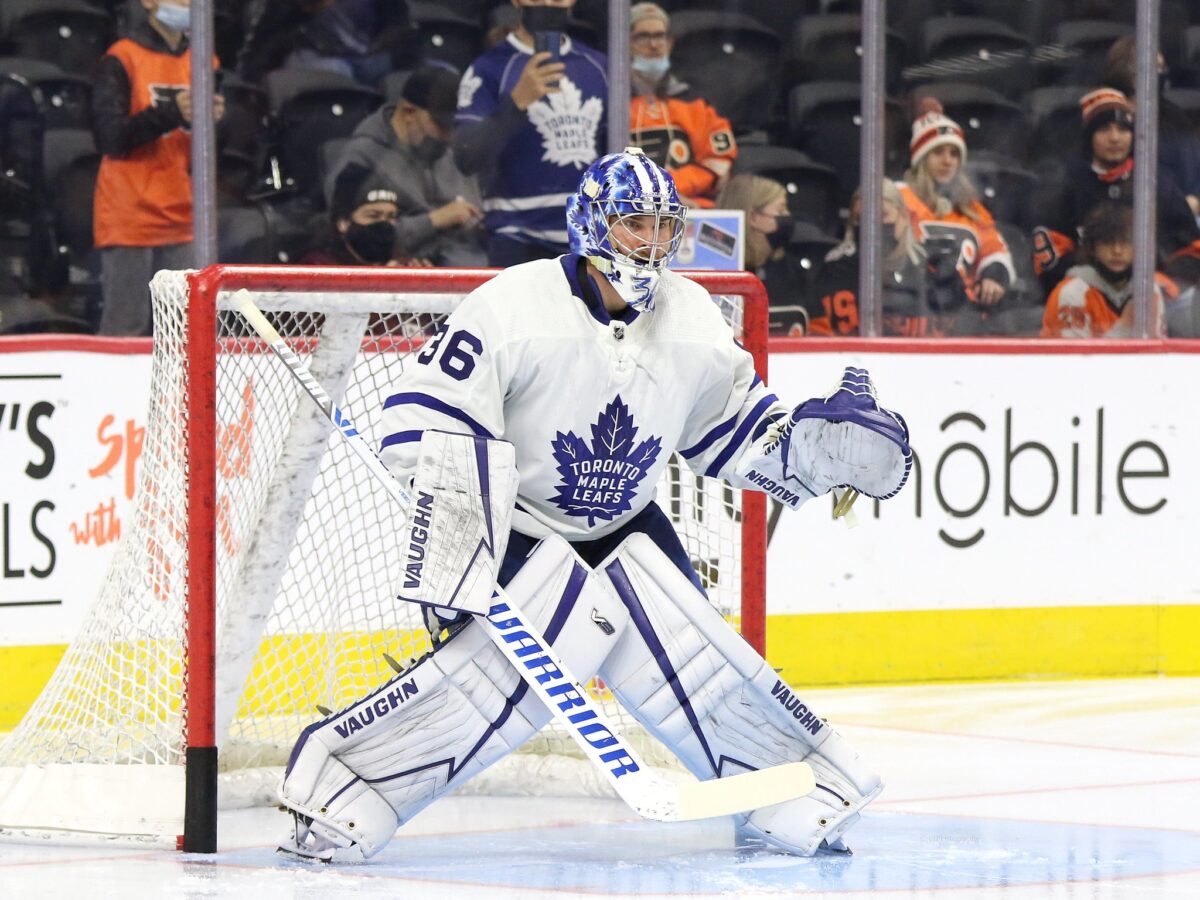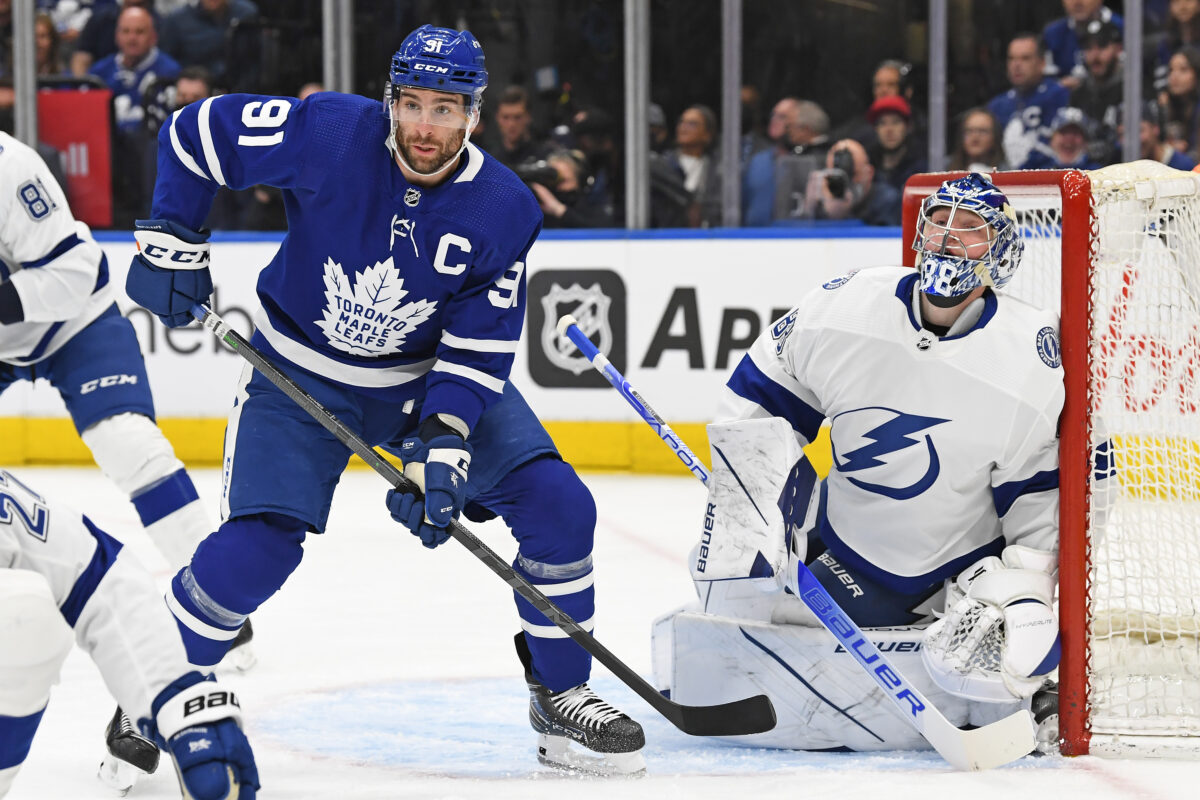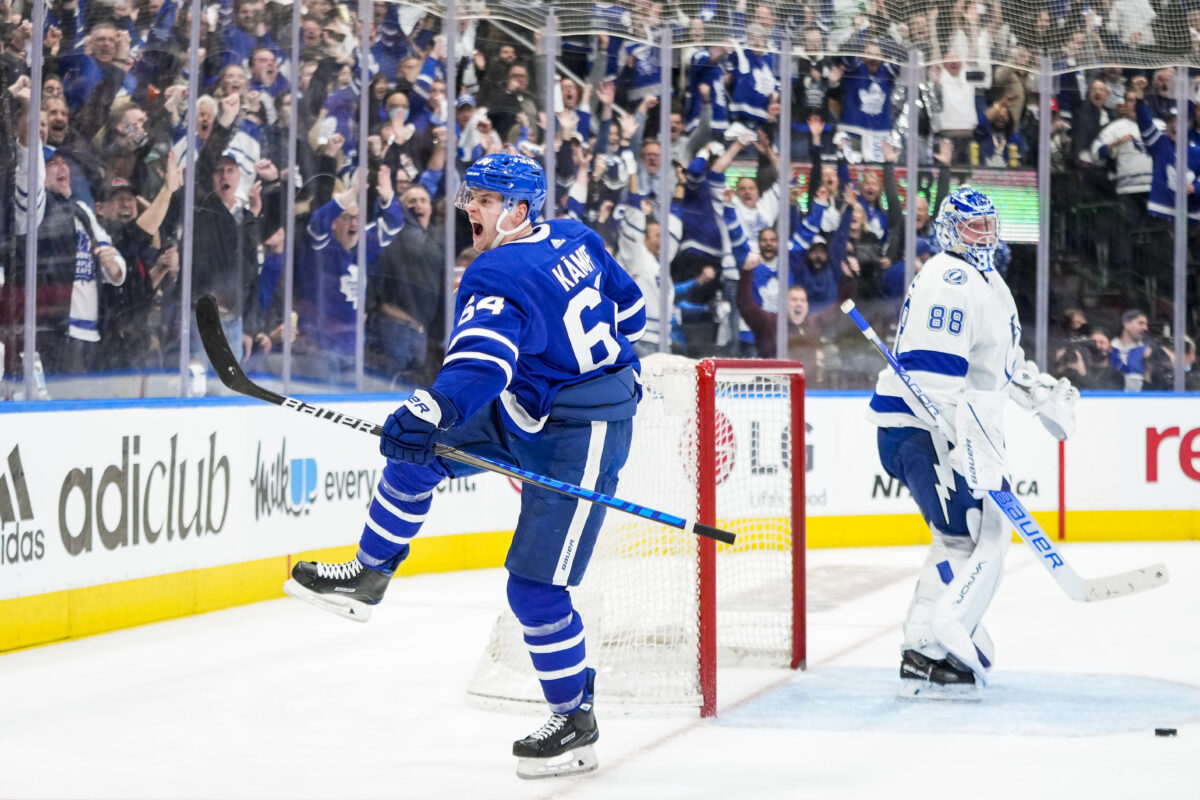In so many ways, NHL hockey mirrors our real-life experiences. Let me offer an example from my own life. When I was young and just starting my career, I didn’t have enough money to buy a house. Little by little, I scraped up enough for a down payment.
Looking ahead, using the best information I had, I believed my salary would increase each year. As well, I speculated that housing prices would rise each year I waited. I came to see the timing of a house purchase as critical and my family bought a house as soon as we could. At first, paying the mortgage was a bit of a struggle. Our budget was tight. Many of us have been there, right?
Related: Deconstructing Dubas: How The 2020-21 Toronto Maple Leafs Were Built
However, I was right that each year my salary increased. I was also right that the house slowly appreciated in value. Before long, the house was a smaller part of our budget, which my salary more easily compensated for.
The Maple Leafs Faced Similar Issues
In many ways, that’s the situation in which the Maple Leafs (and several other NHL teams) currently find themselves. Except, for these teams, it’s been different. Purchases they made a few seasons ago (players’ salaries) are still squeezing their organizational budgets (salary-cap space).

Salary-cap limits have not risen in several years. The purchases (players’ contracts) made along the way were based upon the best information they had at the time that things would – more or less – remain as they were. That changed. It hasn’t been easy on their budgets.
If I had suffered some really odd major injury, perhaps I was struck by lightning when I was walking the dog, and could not have continued to work, would my friends blame me for my decision to purchase a home? Would they have castigated me for not knowing lightning would strike me as I walked? If they did, what kind of friends would they be?
Moving from Our Life Situations to the Plight of the Maple Leafs
That’s the main point of my post. Kyle Dubas has made mistakes as the Maple Leafs’ general manager, but he didn’t cause the pandemic. Nor is he responsible that the salary cap didn’t rise as expected. Nor could he have predicted the impact of the pandemic on his team’s budget.
If the Maple Leafs are in a hole, it isn’t mostly Dubas’ fault. It’s mostly the fault of the pandemic and the unforeseen squeeze it’s had on the team’s ability to proceed as planned. Not even medical experts saw the pandemic coming, so how could a lowly NHL general manager?
Related: Maple Leafs’ Dubas Shows That He’s More Than Just a Roster Builder
Let me make two points here to start my post. I’ve made no bones about it, I am a Dubas fan. While that fact seems to put me in the minority, that’s as it is. Therefore, anything I write here – all my comments – will be grounded in a pro-Dubas bias. The same is true for Dubas critics. Your thinking and comments are grounded in an anti-Dubas bias. It’s how it is. We should be able to agree on that.
The biggest critique about Dubas, and I read it all the time, is not that he doesn’t know how to find talented players (although there’s some critique that he drafts too small too often). His biggest mistake is that he spent too much of the team’s now-fewer resources on too few players. That critique keeps rising about how a team – any NHL team – can compete when half of its salary-cap upper limit is being paid to four forwards, regardless of how strong players they are.
What If There Had Been No Pandemic?
The genesis of this post came from a reader’s comment in the conversation section of the recent post about the Maple Leafs’ reluctance to re-sign Jack Campbell. In that comment, reader Steph O’Leary made an interesting observation that, if the COVID would not have happened, the NHL’s salary cap would likely be around $95-$100 million.

That struck me. NHL fans know that, before the pandemic, NHL hockey had been growing in popularity and that the upper limits of the salary cap were rising and would likely have continued to rise. But, until O’Leary’s comment, I had really not considered the specific numbers or the percentage of the rise.
Obviously, O’Leary is speculating and might not be correct about the exact numbers. But he’s certainly right about the momentum upward that was in place before COVID-19 masked us all up. Given the likelihood of a large rise in the salary cap, the clarity of O’Leary’s numbers puts Maple Leafs’ general manager Kyle Dubas’ decisions in another light.
Without a Pandemic, Salary Increases Would Have Been Mediated
The truth is that any critique of Dubas would be toned down considerably were the salary cap’s upper limit closer to $95 million instead of the $81.5 million it has been for the last few seasons and the $82.5 million it will be next season. That extra cap space – say it’s only $10 million and not the $14 million that O’Leary suggested – would still allow many more opportunities to build this team.
Related: NHL TV Blackouts & Why They Happen?
Sure, there would be problems, but they’d be easier to fix. Sure, the Maple Leafs would be at the max of the salary cap. That’s part of their DNA because they’re a wealthy team. But, would the Core Four still be overpaid? Three of the four would clearly not be.
The only case that would likely be made would be for Maple Leafs’ captain John Tavares. And, that’s because he’s aging past his contract value. But, Maple Leafs’ general managers (and other NHL general managers) make such “problem” contract signings all the time.

(Photo by Gerry Angus/Icon Sportswire via Getty Images)
For example, how many more seasons before 30-year-old (on his birthday tomorrow) Zach Hyman’s seven-year, $38.5 million (salary-cap hit at $5.5 million) becomes a problem for Ken Holland’s Edmonton Oilers? It looks good now, but what about in 2027? How many years did it take Patrick Marleau’s three-year, $18.75 million (salary-cap hit at $6.25 million) contract (signed by then-Maple Leafs general manager Lou Lamoriello) take to become a problem for the Maple Leafs?
As I recall, it cost Dubas and the organization a first-round draft choice to clean up the Marleau “mess.” Is Dubas to blame for losing a first-rounder to the Carolina Hurricanes for a contract Lamoriello signed?
Related: Was Lou Lamoriello as Good as Toronto Maple Leafs Fans Remember?
My point is not to disparage anyone – the least of which are Holland and Lamoriello. They’re decent people and, by their history, good NHL general managers. They make mistakes, too. It’s just that the blame sticks to Dubas in ways that it doesn’t stick to Holland and (especially, it seems) to Lamoriello.
Blame Dubas for His Own Mistakes, But Not Things Out of His Control
It’s fair that Maple Leafs’ fan disagree with a direction the team is going. For example, it’s fair to critique last season’s trade for Nick Foligno. It’s also fair to critique other moves that Dubas makes as a general manger, as it is to critique other NHL general managers.
The truth is that Dubas has, given everything that’s happened, put together solid rosters season after season. The farm system is not depleted. There are prospects who can rise from the Toronto Marlies. How these prospects play remains to be seen. Dubas does hit home runs with offseason signings – as in Michael Bunting and David Kampf.

But it’s time to stop blaming him for not seeing the pandemic coming or for issues a stagnant salary cap has caused the team. The fact is that Dubas didn’t put the Maple Leafs into a salary-cap crunch, the pandemic did.
You may also like:
- Maple Leafs Should Keep Murray as Third Goaltender
- Flames & Maple Leafs Trade History Revisited
- 3 Players the Maple Leafs Could Target on a PTO
- NHL Rumors: Oilers, Maple Leafs, Capitals, Kuznetsov News
- Maple Leafs Should Target Evgeny Kuznetsov as Reclamation Project